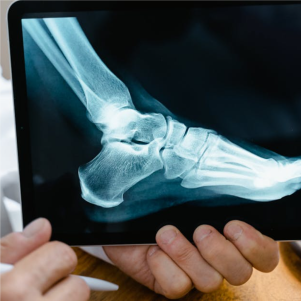Am I Eligible for Workers' Compensation?
Injures on the job can impact more than just your physical wellbeing. Being eligible for workers’ compensation can help with medical bills that need to be paid. If you are put out of work due to an injury, those bills can be devastating. Knowing when you are covered in case of an accident can alleviate much of the stress on your mind and your wallet.

Schedule Your Free Consultation Today
Factors for Eligibility
There are several factors that will affect your ability for coverage. Some of the most important ones to know include:
- Employment Status: In order to receive coverage, you must be an official employee to an employer that has qualified and registered for workers’ compensation insurance. Independent contractors, volunteers, and other non-employee workers are generally not covered.
- Nature of Injury: The reported injury or illness must have occurred while you were performing work-related duties. This can include accidents, repetitive motion injuries, or occupational diseases.
- Timeframe: Typically, injuries and other work-related maladies must be reported to your employer within 90 days of its occurrence or from the time you become aware that it is work-related. After 90 days, you may no longer qualify for coverage.
- Employer’s Coverage: To receive coverage after a claim has been filed, your employer must have valid workers’ compensation insurance. You can verify this by asking your employer or checking the Oregon Department of Consumer and Business Services (DCBS) website. If your employer lacks this insurance, you may want to contact a workers’ compensation attorney.
- Types of Employment: Most employees are covered, but certain types of workers, such as sole proprietors, partners, and some volunteers, may have different eligibility requirements. Contact your company HR department for assistance in knowing what employment status you hold so you can see if you are eligible for workers’ compensation.
- Pre-existing Conditions: If a condition already present before hiring becomes aggravated due to work (e.g., a previous back injury), you may be eligible for compensation. It is best to consult your company’s HR department for specific cases.
- Medical Treatment: If necessary, seek medical attention for your injury. A doctor’s evaluation may be needed to support your claim and can be helpful in identifying that you are eligible for workers’ compensation and obtaining the proper coverage you need.
- Documentation: It would be wise to keep detailed records of your injury, medical treatment, and any communication with your employer regarding your condition. This can only help you in the future.
If you are not sure where you fall under these conditions, be sure to consult your company’s HR department or an attorney. For additional information about workers’ compensation, you can check with the Workers Compensation Division for your state.
Timeframe Exceptions To Your Eligibility For Workers' Compensation
The state of Oregon requires work-related injuries be reported within 90 days. However, there are some exceptions to this rule that can change how you receive your coverage:
- Occupational Diseases: If your injury is due to contracting a work-related disease (skin, chemical, respiratory, etc), the reporting period begins when you become aware of the disease and its relation to your work. Seeking medical help will help in filing for this type of claim.
- Latent Injuries: Injuries that develop gradually over time (e.g., repetitive stress injuries) may allow for reporting after the symptoms become apparent, as it may not be noticeable at first. Don’t make assumptions about your eligibility for workers’ compensation
- Psychological Injuries: For claims involving psychological conditions, the 90 days may start from the date you are diagnosed or recognize the work-related nature of the condition. Keeping accurate and detailed records will be helpful in this situation.
- Employer Notification: If your employer was aware of the injury and did not provide appropriate reporting procedures, this may extend the reporting deadline. For more specific help in this instance, an attorney may be required.
- Medical Treatment Delay: If you were unable to report the injury due to receiving medical treatment immediately after the incident occurred, the reporting period may be extended once you are able to file.
- Minor Injuries: If you initially reported the injury but believed it to be minor and later discovered it was more severe, you may still qualify for coverage after the 90 day report window.
While this information is helpful at a glance, be sure to consult your company’s HR department or an attorney for specific advice after the 90 day limit.
Contact Us
Getting the coverage you need is a key part of recovery from a workplace injury. Knowing if you are eligible for workers’ compensation and when will help you get back on your feet and back to the workforce. In order to best know your rights and coverage, get in touch with an attorney that has your best interest in mind. For help in this process and filing a claim to access your coverage fastest, contact us at 888-813-3188 for a free case consultation.





